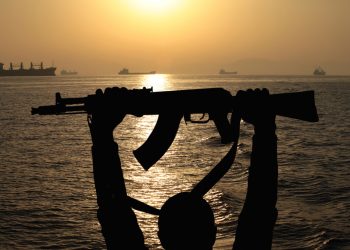Ship owners face higher costs- additional insurance and protection measures
 Escalating piracy along the east coast of Africa was having a “material” effect on the costs of shipping companies operating in the region, according to Grindrod CEO Alan Olivier.
Escalating piracy along the east coast of Africa was having a “material” effect on the costs of shipping companies operating in the region, according to Grindrod CEO Alan Olivier.
He said in an interview after the annual shareholders meeting in Durban on Wednesday that acts of piracy had escalated sharply in the first half of this year. There were 97 attacks off Somalia in the first three months of this year, compared with only 35 at the same time last year, according to the website of the International Maritime Bureau.
He said ship owners faced higher costs as a result. These included additional insurance, the cost of better management practices, higher costs of bunkers and days at sea due to route deviations, and increased capital expenditure such as for secure rooms on vessels and additional security.
“Some owners dont want to trade in these areas. If there is an incentive for them to trade there, this also pushes up costs.” A Grindrod vessel was shot at 18 months ago. Although there were many international navies present in the waters off East Africa, “they are hamstrung on the action they are allowed to take”, said Mr Olivier.
Shipping rates would, in time, adjust for the higher costs relating to piracy.
Vessels with the right management approach had not been attacked by pirates, Mr Olivier said. This approach included higher vigilance and security features such as lookouts, barbed wire and water cannons.
Mr Olivier said shipping conditions were challenging. The dry cargo market had been under pressure for most of the year due mainly to an oversupply of Cape-sized vessels, as demand had remained relatively strong.
In the Handysize (smaller ships) market, trading was “fairly resilient” this year because there were no oversupply issues and demand had remained reasonably good. Commodity demand “remained good generally” for most goods, said Mr Olivier.
In the groups ports and terminals operations, the third phase of the Maputo Coal Terminal was commissioned in March and there had been good rail support from Transnet, resulting in the terminal operating at near capacity, he said. Operations at the Richards Bay dry bulk terminal were still constrained by rail support.
There was “improvement in demand across the board” in the road transport operations, although the business had been affected by strike action earlier in the year, he said.
Source: Business Day





























































